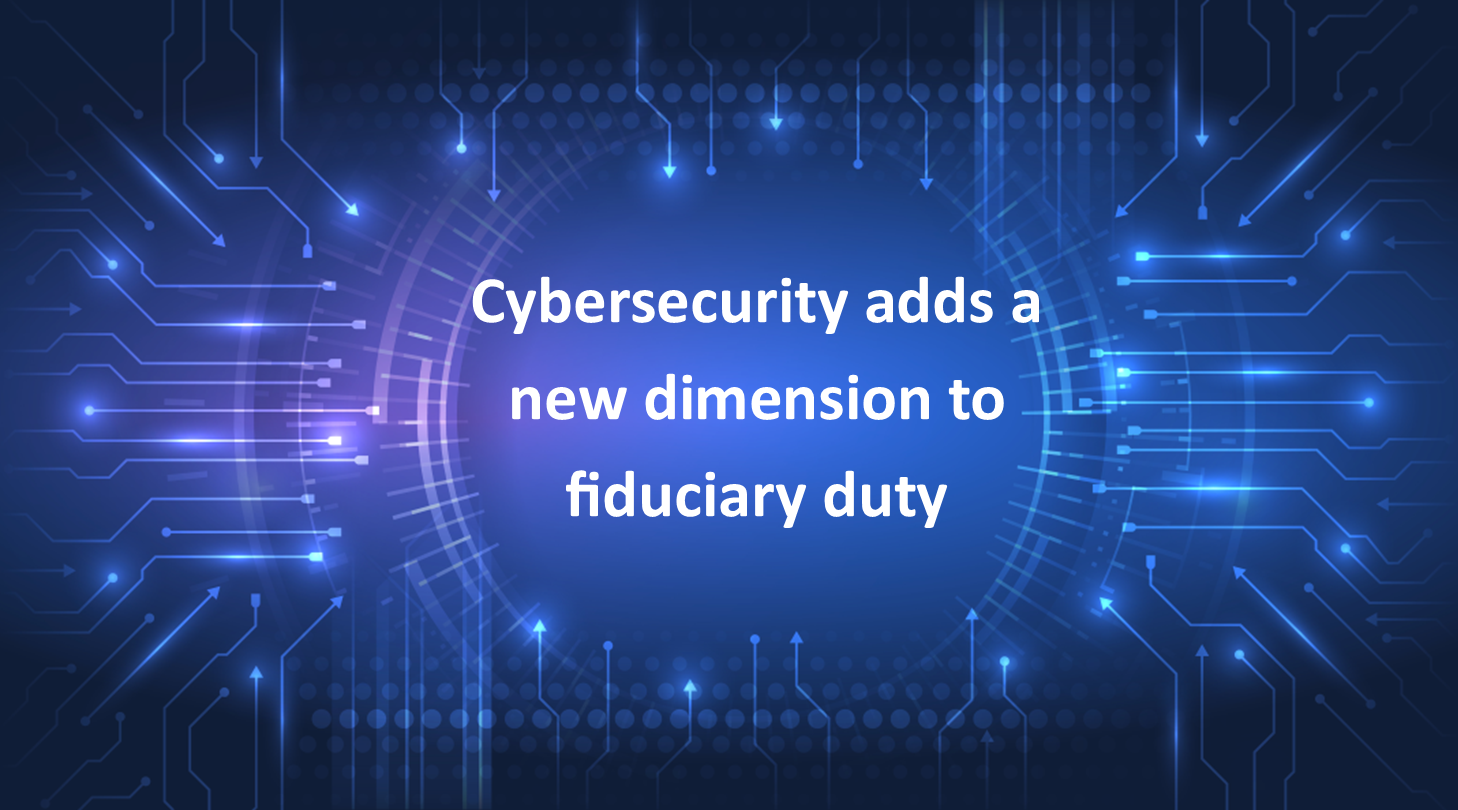Article

The Traditional Role of the ERISA Fiduciary has Changed
In today’s digital age, where data breaches and cyber threats loom large, safeguarding employee benefit plan data and assets has become a critical responsibility for the leaders of organizations of all sizes.
With the increasing digitization of employee benefit plans, plan managers must effectively supervise service providers and adhere to the Employee Benefits Security Administration’s (“EBSA”) sub-regulatory cybersecurity mandates under the Employee Retirement Income Security Act (“ERISA”).
Protecting Employee Benefit Plan Data and Assets
Employee benefit plans contain sensitive personal and financial information. Therefore, ensuring the security and confidentiality of this data is paramount.
Enterprises have a fiduciary duty to prudently protect the interests of plan participants and beneficiaries, which includes safeguarding their data and assets from cyber threats.
- Implementing robust cybersecurity measures, such as encryption, multi-factor authentication, and regular risk assessments, is essential to protect employee benefit plan data from unauthorized access and breaches.
- Regular cybersecurity awareness training for employees, can significantly reduce the risk of data breaches and cyber-attacks.
Managing Service Providers
Most employers engage third-party service providers to administer employee benefit plans. While outsourcing these functions can bring efficiency and expertise, it also introduces additional data security risks. Therefore, it is crucial for organizations to effectively assess their vendors’ cybersecurity practices and dynamically track their service providers’ IT systems.
- Conducting due diligence before engaging a vendor to ensure they have adequate cybersecurity measures in place is essential.
- Establishing clear contractual provisions that outline the service providers’ obligations regarding data protection is crucial for holding them accountable.
Adhering to EBSA’s Cybersecurity Mandates
The EBSA has issued sub-regulatory guidance emphasizing the importance of cybersecurity for retirement plans governed by ERISA. This guidance outlines best practices for mitigating risks and requires plan fiduciaries to conduct periodic risk assessments.
- Employers are expected to implement prudent cybersecurity practices in line with the EBSA’s guidance to protect employee benefit plan data and assets.
- Failure to comply with the EBSA’s mandates can result in severe consequences, including fines and penalties.
Learn about this cyber solution from Roland|Criss
Consequences for Non-Compliance
The EBSA is actively auditing retirement plans to ensure compliance with its cybersecurity rules. Non-compliance with these rules can lead to significant fines and penalties for employers. Moreover, the extension of fiduciary duty to include cybersecurity leaves employers vulnerable to potential lawsuits from plan participants in the event of a data breach or cyber-attack.
- Employers must recognize the legal obligations and potential consequences associated with failing to adequately protect employee benefit plan data and assets.
- Proactively addressing cybersecurity risks and ensuring compliance with the EBSA’s mandates is crucial for mitigating legal and financial liabilities.
Non-compliance with the cybersecurity mandates set forth by the EBSA can have significant implications for employers and plan fiduciaries. Here are some of the key implications of non-compliance:
Fines and Penalties: The EBSA is actively auditing retirement plans to ensure compliance with its cybersecurity rules. Non-compliance can result in the imposition of fines and penalties on employers, which can have financial repercussions for the organization.
Legal Liability: Failing to adequately protect employee benefit plan data and assets can leave employers vulnerable to potential lawsuits from plan participants in the event of a data breach or cyber-attack. This legal liability can result in costly litigation and negatively impact risk insurance coverage.
Reputational Damage: Non-compliance with cybersecurity mandates can lead to reputational damage for the organization. Public scrutiny and loss of trust from employees, plan participants, and the broader community can have long-term negative effects on the organization’s brand and standing.
Operational Disruption: A data breach or cyber-attack resulting from non-compliance can disrupt normal plan operations. The costs associated with managing the aftermath of a cybersecurity incident, including remediation efforts and potential downtime, can be substantial.
Regulatory Scrutiny: Non-compliance with EBSA’s cybersecurity mandates may invite increased regulatory scrutiny, leading to additional audits, investigations, and oversight, which can be burdensome for the organization.
Conclusion
The digital age has redefined the fiduciary responsibilities of employers towards protecting employee benefit plan data and assets. Adhering to cybersecurity mandates, effectively managing service providers, and implementing robust cybersecurity measures are imperative for safeguarding employee benefit plans and mitigating potential legal and financial risks.
Enterprises must prioritize cybersecurity as an integral aspect of their fiduciary management framework to ensure the welfare and security of plan participants and beneficiaries.




